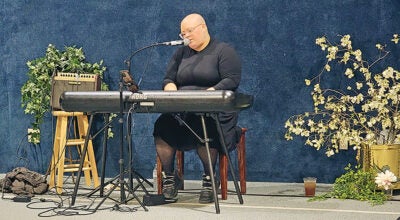Ohio high court to set date in Goff appeals case
Published 10:04 am Tuesday, August 3, 2010
The Hamilton Township woman convicted of killing her estranged husband could get her day before the Ohio Supreme Court by the end of the year.
Megan Goff was convicted in a bench trial in 2007 for the death of Bill Goff, who was shot 15 times in the head and upper chest at his home the previous year.
Goff claimed she was the victim of battered woman syndrome and that the shooting was committed in self-defense.
However, visiting Judge Fred Crow from Meigs County rejected those arguments and found her guilty of aggravated murder, sentencing her to a minimum of 33 years in the Ohio Reformatory for Women in Marysville.
She appealed the conviction to the Ohio Fourth District Court of Appeals on nine grounds of argument. In September 2009, that court rejected all arguments.
However this past January in a 4-3 vote, the Ohio Supreme Court agreed to hear arguments on three of the nine proposed errors from the original trial.
Goff claimed she was subjected to self-incrimination because she was ordered to submit to a psychiatric examination arranged by the prosecution on the issue of battered woman syndrome by Dr. Philip Resnick.
Resnick has been a consultant on such high profile cases as the Oklahoma City bombings and the murder trial of Andrea Yates, the Texas mother who drowned her five children.
Assistant Lawrence County Prosecutor Bob Anderson filed his response to the defense brief in July arguing that Goff contradicted herself by offering psychiatric testimony for herself, but denying the prosecutor had the right to rebuttal.
“Appellant simply cannot have it both ways,” Anderson wrote. “Once she offered her expert testimony, as the Court of Appeals ruled, it would be unfair for the State not to have the opportunity to have Appellant evaluated by a psychiatrist who would testify only in rebuttal.”
Anderson asked the state supreme court to affirm the decision of the lower appeals court.
“Even if this court would sustain and adopt any or all of the propositions of law, appellant would still not be entitled to a reversal of her convictions,” the prosecutor wrote.
“She offered absolutely no evidence that she was not at fault in creating the situation giving rise to the altercation or that she did not violate any duty to retreat or avoid the danger.”
This past Friday Goff’s attorneys from the Columbus-based firm of Kravitz, Brown & Dortch filed a response to Anderson’s brief. Now it is up to the high court to set a date for oral arguments.
“The court typically hears arguments three to six months after the time of the appellants (last filing.),” Bret Crow, public information officer for the Ohio Supreme Court, said. “That appears to be the next step here.”





